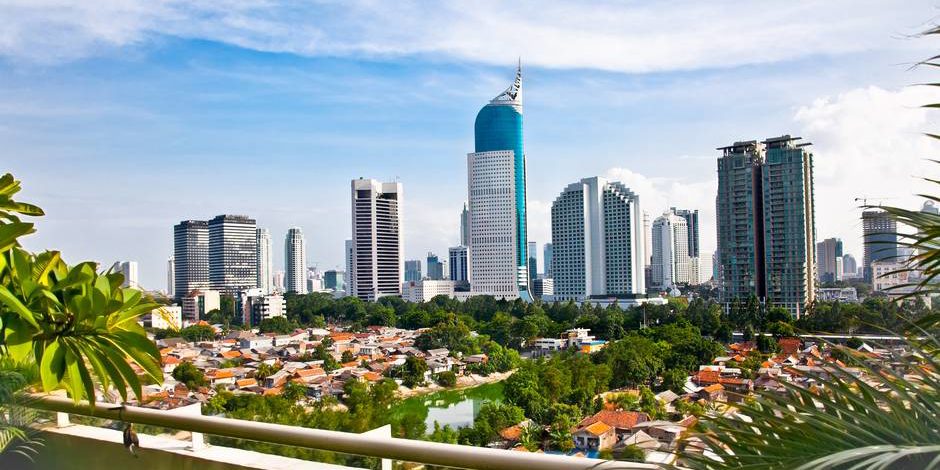Since the win of Anies Baswedan and Sandiaga Uno in the Jakarta election of 2017, many Indonesians are beginning to be concerned that the populist movement, combined with a strengthened grip of Muslim traditionalists in politics, and an increasing number of ex-army generals taking part in the upcoming regional elections in July 2018, [1] will unwind many of the President Joko Widodo’s strategies; including developing regional and national infrastructure to support local economic growth.
More than two-thirds of Indonesians will cast their votes in 171 areas across the country, [2] and the three most populated provinces, all located in Java, accounted for almost 100 million people. [3] Policy-making has become more difficult due to the actual and potential rise of the oppositions in-power in key areas. For example, Anies Baswedan has rolled back some of key traffic management solutions implemented by the currently-imprisoned ex-mayor Basuki Tjahaja Purnama (Ahok), such as with reintroducing motorcycles on artery roads. [4] This as well as provision of flooding prevention systems have been key indicators for locals to evaluate the Jakarta government. These indicators have been consistent in such a way that Joko Widodo (Jokowi) government has planned to relocate to Borneo, should the governor not deliver. Promises made by Anies such as free housing with no interest payments to “low-income families” [5], that reside in Jakarta, will be heavily scrutinized if any sign of progress with this plan is not realized within the first year of office.
West Java, the most populated province in the country with more than 43 million inhabitants, is a battleground for many political parties since the dissolve of the Suharto government in 1998. This province has been showing preferences towards pro-Muslim, centre-right candidates, and its people are more critical against Jokowi governance. This highlights the current issue in social media: the rise in hoaxes and fabricated news has led to the unjust imprisonment of Ahok last year; the news of which is picked up by media across the world. [6] Religious tolerance has shown sign of disappearance in some places, with the increase in sentiments toward non-Muslims and non-Javanese. Regardless of who will win the regional elections in July, it will distract the government from pushing economic reforms, such as improving attractiveness to invest in the country and sustaining economic growth. Uncertainty in the transfer of political powers creates a challenge for Jokowi.
Whoever will become governors and vice-governors in six months’ time need to ensure a non-hostile environment towards foreign investors. Not only would this keep positive net-export growth, it would also foster the tourism industry, which is one of the strongest performing sector in the economy alongside digital economy. [7] The World Bank has upgraded Indonesia’s ease of ‘doing business’ to the seventy-second position, and the Gallup World Poll has placed Indonesia as having the most trustworthy government across international states. [8] The current government has set ten locations as the “next Bali”, half of which are in provinces where the upcoming elections will take place. [9] Seriousness in developing these areas will not only boost local economic growth but also boosting revenue and decrease the fiscal deficit.
However, Indonesia has shown very strong performance last year: Net exports were valued from January to September 2017 at US$ 122.6 billion, showing a 17.36% increase from the previous year. [10] This is contributed by increases in performance in “non-natural resources” sectors such as the textiles and machineries. [11] Given that Standard&Poor’s decision to set Indonesia’s government bond to an investment grade level in 2017, shows that the macroeconomic indicators for Indonesia have been favourable in recent years. [12] In addition, public debt has been maintained below 30% of GDP, which is the upper bound set by the country’s central bank, the Bank of Indonesia. [13] The Minister of Finance, Sri Mulyani Indrawati, ensures the public that the current government can manage its debt efficiently and productively. [14] The tax amnesty program was deemed successful by the credit rating agency after it has raised US$ 11 billion in revenue, despite missing its target by US$ 5 billion. [15] However, Goldman Sachs has claimed that this news can attract up to an additional US$ 5 billion in funds. [16]
2018 is set to be a strong year for the Indonesian economy. The central government has implemented strategies to boost growth, improve the efficiency of its policy making, and has shown that the country is becoming more open toward foreign investors. However, the upcoming elections, and a permanent fear of possible corruption, such as in the case of electronic IDs, could lower the momentum of promising news, and the expectations of the Indonesian people.
Bibliography:
[1] Mehulika Sitepu (DEC 2017) Petinggi Polri dan TNI maju di Pilkada 2018, Indonesia kembali ke Orde Baru?
http://www.bbc.com/indonesia/indonesia-42443613
[2]; [3] Badan Pusat Statistik (FEB 2014) Proyeksi Penduduk Menurut Propinsi 2010-2035
https://www.bps.go.id/statictable/2014/02/18/1274/proyeksi-penduduk-menurut-provinsi-2010—2035.html
[4] Deti Mega Purnamasari (JAN 2018) Supreme Court Verdict to Allow Motorcycles on C. Jakarta’s Jalan Thamrin
http://jakartaglobe.id/news/supreme-court-verdict-allow-motorcycles-c-jakartas-jalan-thamrin/
[5] Deutsche Welle (JUL 2017) Jadi Untuk Siapa DP Nol Rupiah?
http://www.dw.com/id/jadi-untuk-siapa-dp-nol-rupiah/a-39667795
[6] Kate Lamb (MAY 2017) Jakarta governor Ahok sentenced to two years in prison for blasphemy
[7],[8],[10],[11] BKPM (DEC 2017) 2018 Economic Outlook: It’s time to invest, no need to wait any longer
[9] Jakarta Post News Desk (JUN 2017) Indonesia announces 10 new destination brands
http://www.thejakartapost.com/news/2017/06/15/indonesia-announces-10-new-destination-brands.html
[12],[13] Karlis Salna (MAY 2017) Indonesia Raised to Investment Grade by S&P on Budget Curbs
[14] Dewi Ainatuz Zuhriyah (SEP 2017) UTANG RI: Pemerintah Pertahankan Rasio 30% Terhadap PDB http://finansial.bisnis.com/read/20170904/9/686835/utang-ri-pemerintah-pertahankan-rasio-30-terhadap-pdb
[15] Guntur Putro Jati (MAR 2017) Bulan Terakhir Tax Amnesty, Tak Satupun Target yang Tercapai
[16] Alin Almanar (JAN 2018) More Politicians Grilled as KPK Digs Deeper Into e-KTP Graft
http://jakartaglobe.id/news/more-politicians-grilled-as-kpk-digs-deeper-into-e-ktp-graft/
Edited by Luke Doyle, Bsc. Economics and Economic History






